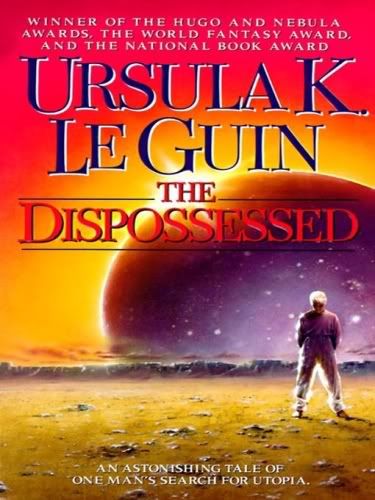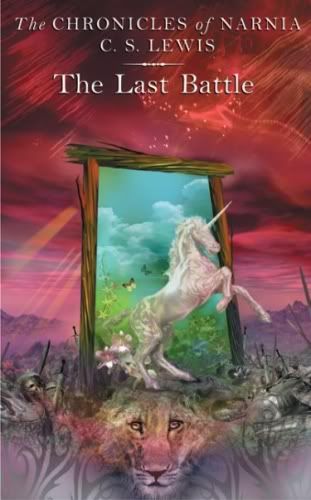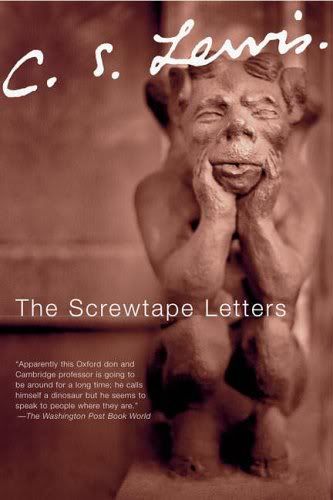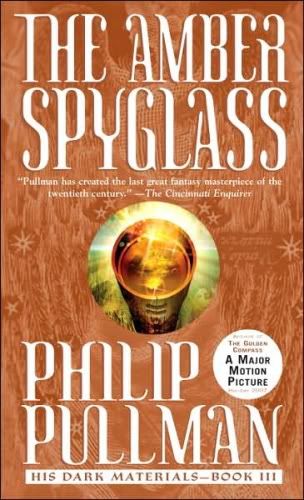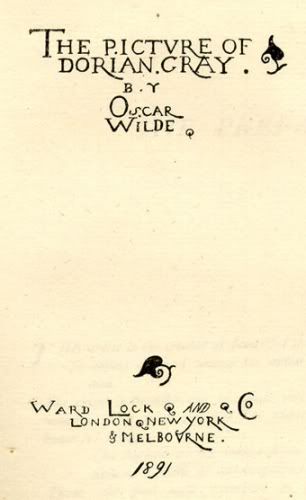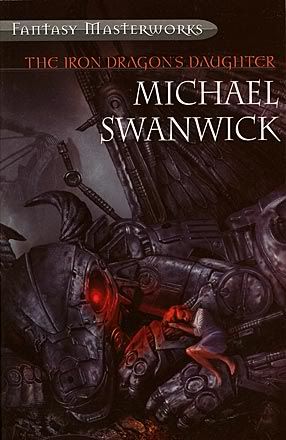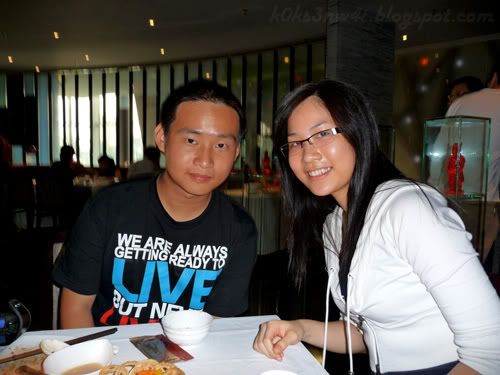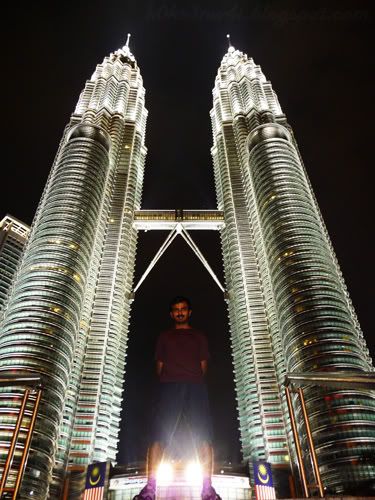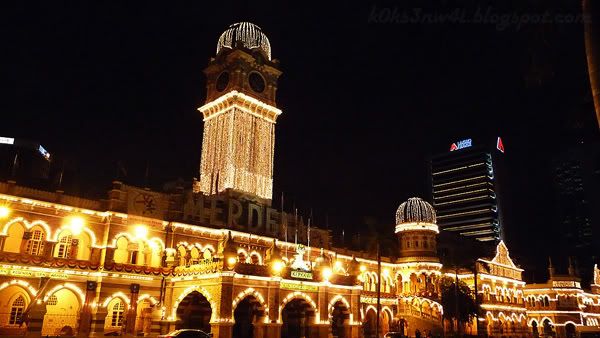"Distant flickering, greener scenery.
This weather's bringing it all back again.
Great adventures, faces and condensation.
I'm going outside to take it all in."
"You say too late to start, got your heart in a headlock,
I don't believe any of it.
You say too late to start, with your heart in a headlock,
You know you're better than this."Headlock (2006) by Imogen Heap
I'm writing this post in reaction to a great number of people who opined that my love of the genre of speculative fiction - particularly fantasy and science fiction - is, how do you say, misplaced? I am tired of people ridiculing me for it. I am sick of people looking at me like I'm some immature moron yet to outgrow his fairytales. I am disgusted with how some people can declare in a sneering and arrogant tone about how they "don't have time for fantasy" or "too old for such nonsense" right after they ask me about the sort of books I read. I have had intentions, in the past, of participating in a few reading circles only to find out that they are too sophisticated for fantasy and science fiction, and that they only read serious and starkly realistic fictions that make them feel smart. Right here and now, I intend to change that. I intend to defend my favourite pastime as intelligently as I'm able to and to show everyone just how wrong these people really are.
My interest in speculative fiction and all its associated genres in literature came up lately in a conversation I had with a friend of mine and we had a polite disagreement over it, specifically over its relevance to our lives on a practical level. I can't remember what she said verbatim but the gist of it is this,
"I prefer reading things which helps me understand this world. Fantasy has no relevance to our daily lives."
My reply went something like this,
"It depends on the quality of the author's work. I agree that there are a lot of rubbish in the genre but there are many great books which relates very well to our real world, our ethics, morals and philosophies. They aren't always apparent, but they are certainly worth the dig - and they can certainly be applied to the real world."
To which she answered,
"I don't see any elves running around in the real world - do you?"
That about sums up the entire problem here - a superficial stance on a medium thought to be superficial itself. A great number of people (fantasy fans, non-fans and anti-fans included) shows a dismissive reluctance in examining the themes making up the core of a fantasy or science fiction novel, mostly due to the perceived frivolity of these books. I mean, if it doesn't take itself seriously, why should we, right? There can't possibly be anything important or meaningful behind all those magic, dragons and bullshit, right?
If that's what you've been thinking all this while, you are about to be proven wrong. By me.
Take for example Madam Ursula K. LeGuin, one of my favourite authors, who has written many of the most well-known fantasy and science fiction novels since the 1960's, and have practically won every single speculative fiction award there is to be won. What elevates her work from the rest of the rabbles are her sly explorations of sociological and anthropological ideas through her writings, cleverly disguising scholarly ideas in flashy fantastic elements. Take a look at her short science fiction story, The Ones Who Walk Away from Omelas which tells of a utopian city and society which is learned, cultured and durably happy - perfect in every way except for the secret of the city. The good fortune of the city of Omelas depends on the suffering of one child kept in filth, darkness and misery. It discusses the ethical issue of the many directly reaping the benefits from the suffering of just one person, more concisely known as scapegoating. Another high fantasy book also speaks of the same psychomyth; The Holy Bible. Yes, from a wholly secular viewpoint, the Bible is undoubtedly a work of speculative fiction (albeit one which is very dry and unreadable, in my opinion). In fact, I put my copy of the Bible on the same shelf as my fantasy books.
A factual and "serious" literary example of the same would be pioneering American philosopher and psychologist James Wilson's article, A Moral Philosopher and the Moral Life, which sounds about as interesting as toenail clippings.
Here's where fantasy - or even fiction in general - really beats non-fiction. When you read from a non-fiction work, you will often fall into the trap of assured acceptance of whatever you're reading is authoritative; the proverbial last word on the subject. It tells you stuff and you either agree with it or you don't (often the former if you're the impressionable type). Very passive style of reading, I think. Good fantasy or science fiction novels present you with idealogies and dilemmas set in motion in a hypothetical world, and they are almost always presented in an indirect, non-authoritative fashion - allowing the readers room to wrap their minds around the concepts and to draw their own conclusions from what they read. The difference is a bit like telling a child that stealing is wrong versus asking a child whether stealing is wrong or not. Faux-objectivity versus practical subjectivity, and I'm a proponent of the latter because I believe that nothing is free from context. Non-fiction and realistic fiction works deaden creativity. Speculative fiction fosters creativity and adaptivity. Another good example by LeGuin (I'll talk about other authors soon, I promise) is The Dispossessed, which is set in two contrasting worlds a colony on the moon called Anarres, and its neighboring planet Urras. The colony is an experiment in total socialization, with no private property, no class or rank, with even names of the new-born chosen by computer. This experiment in idealistic anarchy contrasts with the capitalistic older society of Urras, which is based on wealth and class. LeGuin did not, to her credit, show her preference for either world but instead, gave us an impartial comparison of the two.
I'm not saying that there are no fantasy or science fiction novel which shows obvious author bias towards a particular ideal. I'm just saying that the apparent puerility of the genre is more conducive to a reader to question the represented ideals, eschewing thoughtless and blind acceptance we often employ in the face of purported "facts". The polar attitudes towards religious texts such as the Bible is evidential of that. It's either the Word of God (in which case a reader dares not question its contents) or a Work of Literature (thus inviting readers to draw their own conclusions and form their own opinions about it). I myself often liken the Serpent in the Garden of Eden to Prometheus of Greek mythology who stole fire from the Gods and gave it to men, and thus, deserves reverence. Likewise, I also often look at the Old Testament God as the archetypal Dark Lord found in most fantasy novels. Hey, the shoe fits...
Speaking of religion, the topic frequently emerge in speculative fiction due in part to its inherent sensitive nature. Fantasy and science fiction is often used as a proxy in debating religious opinions to distance the sensibilities of those involved from criticism or perceived attacks. The Narnia novels by C. S. Lewis, renowned Christian apologist and writer, are basically children stories with an overt Christian flavour starring talking animals and God Himself in the guise of a huge lion called Aslan. In the last book of the series, The Last Battle, C. S. Lewis even criticised a controversial element of the religion in writing. He openly supports soteriological incluvism in that book over the widely accepted exclusivism nature of Christianity. I'm with Lewis on this.
The Screwtape Letters (also by Lewis) is also another good fantasy satire with a religious subject matter. It details a series of letters written by Screwtape, a senior demon in a bureaucratic position in Satan's service writing to his nephew Wormwood, a junior tempter, on the foibles of humans and the weaknesses by which they can be led astray onto the path of damnation. I really enjoyed the thoughtful witticism of Screwtape as he describes the many failings of mankind with frightful accuracy, many of which I found myself in complete agreement with.
A bit of a trivia this; The Screwtape Letters is dedicated to J. R. R. Tolkien, the undisputed father of modern fantasy an author of the celebrated Lord of the Rings trilogy which originated (read; gave birth to) many of the contemporary cliches and character templates found in third rate fantasy novels which, I feel, bogged down the genre as a whole and created the reputation that fantasy is derivative, unimaginative and childish. Tolkien was also the guy who converted C. S. Lewis to Christianity, if you don't already know that.
Lest it be said that I'm under-representing other authors who also writes about religion in fantasy, I also recommend the His Dark Materials trilogy by Philip Pullman, a staunch detractor of C. S. Lewis and organised religions. In his books, he cleverly subverted the Christian mythology, indirectly portraying Lucifer (or his surrogate in the books, Lord Asriel) as a revolutionary trying to overthrow a tyrant with the intentions of turning the Kingdom of Heaven into a Republic of Heaven, while at the same time, implying something about victors *coughGodcough* writing the history books. The central themes are about Free Will, and Freedom Through Knowledge. The third and last book of the trilogy, The Amber Spyglass, dealt amply with these themes, particularly the latter. Pullman, as reflected in his writings, believes that the Fall of Man - after disobeying God and eating the fruit from the Tree of Knowledge of Good and Evil - is one of the best things to happen to mankind (I believe the same, by the way). Pullman also drew a beautiful allegory of the Fall, likening it to a child growing out of infantile obeisance into a thinking, rational adult.
Even R. A. Salvatore's pulpy sword-and-sorcery Dark Elf Trilogy (arguably the best of the mostly crappy Drizzt Do'Urden books), had something to say about God(s) Without versus God(s) Within, and about how Religion Should Agree with Man instead of Man Having to Agree with Religion. For example, I call myself a Buddhist because many of my personal beliefs are coincidentally similar to Buddhist teachings - not because I do what is dictated by Buddhist teachings. This one's for my friend and everybody who thinks that elves has no relevance to real life. Take that, hah!
Moving on from religion and religiousity, I like to share with you my favourite speculative fiction novel from the classic canon, The Picture of Dorian Gray by Oscar Wilde, a story about a handsome young man lamenting that he will one day grow old and that his physical beauty will fade with age - who wishes that his portrait would age instead of him. Miraculously, he got what he wished for and he plunged into a series of debauched acts. His portrait serves as a reminder of the effect each act has upon his soul, with each sin being displayed as a disfigurement of his form, or through a sign of aging. The premise on its own is intriguing enough, even without the sly commentary of late Victorian societal hypocrisy, and the themes of homoeroticism and of sensual gratification (or as Lord Henry Wotton, one of my favourite characters in fiction, put it; "a new kind of hedonism").
And while you're at it, check out also Michael Swanwick's The Iron Dragon's Daughter - a darkly beautiful fantasy/steampunk hybrid novel which subverted popular fantasy tropes and archetypes (dragons, for example, are giant mechanical, part-cybernetic monsters built in factories and are used as jet fighters). The book simultaneously criticises the commercial exploitation of Tolkien's legacy by shitty fantasy writer wannabes while exploring an amalgam of themes as diverse as Child Slavery, Adolescence, Nihilism and (my personal favourite) Existence Without Ultimate Destiny. Reading this book was a life-changing experience for me, though I may just be in a receptive frame of mind when I read it - so I don't guarantee the same for everyone else who picks it up.
There is no shortage of truly original fantasy novels that discusses important themes, issues and philosophical ideas beneath the gilding of fantasy and whimsy and if I have to go on describing such books in length, I'm afraid that I will never finish this article. But now, just let me point out to everyone that of all the titles I have mentioned so far, only ONE contains the Tolkienesque elves which my friend chided me about at the start of this essay. I meant you to know that the genre of speculative fiction is a genuinely inventive one if you look in the right places, and that the greatest specimens which belong to it reflects this in both form and substance. That's why I always enjoyed hunting for good fantasy novels - it's gives me a real high every time I lucked out and managed to dust off a volume of pure gold from the speculative fiction shelves.
It really ticks me off when people make unfounded assumptions of fantasy without actually giving it a try. It's these people who are shallow, not the genre of books they so wrongly accuse of shallowness. Their ability to think is so severely myopic that they find it quite impossible to see past the obvious. Maybe that's why non-fiction or factual books are more suitable for them - their thought processes are simply too primitive to handle complex metaphors.
I often explain my abhorrence of non-fiction and realistic fiction works like so,
"We already live in the real world - why do we have to read about it?"
Fantasy and science fiction novels are the raw imagination and creativity of the human mind made ink and paper. Whole worlds, the natural laws governing them and the societies which they are home for are pieced together whole cloth using nothing but artistic brainpower. Reading them is escapism, yes, but why must it be such an embarrassing thing to indulge in, really? The telling of a great story lies at the core of human civilisation and we had, for ages and ages past in great Homeric fashion, used Lies to tell the Truth. Speculative fiction is part of that legacy, a contemporary manifestation of that glorious tradition which I believe and feel, is very worthy of celebration.
And it's just an added bonus that they are such rip-roaring fun to read.
Addendum: If you're interested in more original speculative fiction novels with an intellectual turn, you might want to check out these other titles I couldn't find the time to include in this post,
- Watchmen by Alan Moore. I know this is a graphic novel (i.e. comic book) but I find this a better read than a lot of books I know. It deconstructs the superhero concept, examining what costume vigilantes would be like in a credible, real world, and asks a very important question, "Quis custodiet ipsos custodes?" Who watches the watchmen? You might want to look into it, seeing that the movie's coming out soon.
- Dune by Frank Herbert. This celebrated science fiction novel explores the themes of Religion in Politics, the Meaning of Humanity, Manipulation of Religion to Secure Power and Human Control over Ecology. In the Dune universe, there is also a resource found only on the planet Dune, the spice melange, on which the economy and power structure of the entire interstellar empire is dependent on (essentially a galactic analogue to our petroleum). It also offers an interesting take of the concepts of ancestral memory passed on through genetic memory, and of prescience.
- The Earthsea Cycle of novels by Ursula K. LeGuin follows the story of Ged, a young wizard's journey and growth to greatness. Sounds contrived, eh? What set it apart from its contemporaries is that the protagonist has red-brown skin, a pioneering breakaway from the white hero stereotype of the genre. From even its superficial characterisation, LeGuin have managed to make firm statements about Racial Stereotypy through the books. Before the series ended, she tore through the themes of Reincarnation versus Afterlife, Gender Differences, and Being versus Doing, amongst a sundry of other topics through 5 books. Ged is also suppose to be a deconstructionistic take of the ancient and wise wizard archetype; LeGuin herself said that she often wondered how such Gandalf-esque characters come to attain their status. Of course LeGuin being LeGuin, she went one step further and explore the subsequent loss of Ged's magical abilities at the height of his power. The Earthsea books are, in my opinion, some of the finest reads in the fantasy genre.
- Jonathan Strange and Mr Norrell by Susanna Clarke answers the important question which have baffled historians for decades; "How would the Napoleanic War be fought if England had magicians on her side?"
P.S. If anyone wants more literary recommendations from me, you can ask me in the comments section below this post. Give me your preferences and I will try to prescribe suitable titles for you to the best of my knowledge. Also, if you know any good fantasy books, let me know, okay?
P.P.S. This post took me almost two whole weeks to write - mainly because I needed to finish reading a couple of the works I mentioned here. That and all the looking up I had to do through my library.
Defender of fantasy,
k0k s3n w4i

